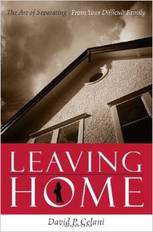When we argue with our loved ones, we often descend into strange caricatures that aren't logical, aren't helpful to our relationships, that we can't seem to get out of. Many of us have had the experience of asking someone we live with to do their agreed upon chore and the discussion quickly descended into a yelling match, where one person plays the part of the aggrieved injured party, and the other plays the part of the outraged moralist, neither party getting what they need from the interaction.
When a client comes in for counseling, I like to listen to which of the six voices they begin with:
Why do we play these roles? Eric Berne wrote a bestseller back in the 1970s, Games People Play, in which he described the major "games" or roles he observed in two-person interactions. But much earlier, a psychiatrist in the 1940s in Scotland, around WW2, Ronald Fairbairn (see photo) described three basic interactions that I have found useful. He used Freudian terms (in an anti-Freudian way) that are formidable to comprehend, so I will use more descriptive terms:
When a client comes in for counseling, I like to listen to which of the six voices they begin with:
- I need more affection in my life. (Healthy Child)
- I need to provide more peace and rest in my life. (Healthy Parent)
- My life sucks. I hate myself. (Neglected, Angry, Hopeless Child)
- I have been so bad at keeping up with my responsibilities and there is no excuse for it. (Rejecting, Neglecting Parent)
- I really, really want to have an affair with this gorgeous person at work. (Unrealistically Hopeful Child)
- I'm probably the most complex person you've ever counseled! (Exciting, Rejecting Parent)
Why do we play these roles? Eric Berne wrote a bestseller back in the 1970s, Games People Play, in which he described the major "games" or roles he observed in two-person interactions. But much earlier, a psychiatrist in the 1940s in Scotland, around WW2, Ronald Fairbairn (see photo) described three basic interactions that I have found useful. He used Freudian terms (in an anti-Freudian way) that are formidable to comprehend, so I will use more descriptive terms:
| 1. Healthy Child .................to -> 3. Angry, Hopeless Child..... to -> 5. Unrealistically Hopeful Child... to-> In the chart above, the Healthy Child only talks to the the Healthy Parent and the Healthy Parent only talks to the Healthy Child. The Healthy Child inside each one of us, is aware of his/her needs and emotions, is able to ask for needs to be met, and is able to accept positive parenting. "I'm feeling lonely, I need a hug right now." The Healthy Parent inside each one of us, is able to nurture appropriately, hold good limits, comfort, encourage, and be patient. "What's going on right now? Are you needing more encouragement in your work?" The Neglected, Angry, Hopeless Child inside each one of us, only talks to the Rejecting Parent. The Hopeless Child is irritable, spiteful and depressed by the constant stream of bad luck and betrayals that come our way, and is full of hatred for others and self. "I should just go into his office and throw all this work back on his desk. That'll show him!" "I'll do the homework you suggested, but it won't help." The Rejecting, Neglecting Parent inside each one of us, is equally irritable, distracted, angry, impatient, disdainful, sneering and rejecting of emotions and needs. "Oh, pull yourself together. You are such a cry-baby." "After all I've done for you, how could you be so ungrateful?" The Unrealistically Hopeful Child inside each one of us, only relates to the Exciting Parent and is eager to try new things, believe the sales staff, gamble at the casino, fall in love and believe that people who have disappointed us in the past will be different this time. The more depressed we are, the bigger this Voice is. "I'm waiting here on the curb because Daddy said he would take me to the zoo today." "You're the most amazing therapist I've ever had." The Exciting, Rejecting Parent inside each one of us, is always promising more than he/she can deliver. "I'll come by Saturday and take you to the zoo!" (Except that I usually wake up with a hangover on Saturday and I go to the bar to alleviate it, so the zoo is forgotten.) "I'm the most amazing client you've ever had!" Notice that the first two voices: Healthy Child and Healthy Parent are the only good voices in the bunch. When we can understand which voices we are speaking from and to, then we can look at our behavior and begin the healing process. Rigid Parenting I was raised in a rigid fundamentalist religious family, and I tried to raise my children the same way. But now that I have hindsight, I wish I had done it differently. Several years ago I invited a new family at church with many children over to our house for Sunday lunch. Some of this family's children were the same ages as my own. As the children grew up some of them became drug addicted, some serving time in prison for drug dealing. Why? They had grown up in a teetotalling family that attended a Bible believing church twice a week. Their parents stayed together. The family ate meals together, prayed before their meals, honored God and home schooled, strictly limiting TV, video games and movies. What happened? Nothing extraordinary, that's about normal for religious families that are somewhat rigid. Almost all of the boys in the youth group at our church were struggling, several were regular marijuana users, one was occasionally suicidal, several boys got arrested once or twice, one boy used kiddie porn, almost all of the boys used regular porn. Several used alcohol regularly. Most of them were having sex whenever they could. That's what evangelical teens look like in most churches. Those who have had teens understand this and are not surprised, those who have children under 13 years old do not understand this, and are committed to making sure their young teens go to youth group every week so they won't act like that. One of the reasons that teens from rigid families have such a struggle in the teen years is that they have not had a foundation for making decisions in their lives. Developmentally, a switch is thrown in teens' brains that says: "Start practicing making your own decisions before you have to move out of the house and fall flat on your face." So the teens make their own decisions. Teens know intuitively that at age 18 or 19 they are moving out, and will be making most of their own decisions, especially decisions about how to conduct their day to day lives. They know they have to start practicing. Non-rigid families that are preparing their children for decision making start very young. "What do you want to eat today? Eggs or oatmeal?" "Would you like to wear this shirt or that shirt?" "What story do you want me to read to you?" For more important decisions: "Do you want to wear your coat or carry your coat?" "Do you want to do your homework now or in half an hour?" "Do you want to clean your room with me in the room or by yourself?" As children get older they have more latitude: "You can skip baseball practice if you want to, but I'm worried you won't get to play first base. Have you thought about that? What will happen if you skip practice?" Rudeness: "If you are rude to me then I don't want to take you to your friend's house this afternoon. If you want me to have energy to do you favors, then you have to be nice to me." School: "You can decide not to do your homework, but I'm worried that you are limiting your career choices. What do you think you would like to do for a job when you get older?" Health: "You can decide to smoke cigarettes, but not at home here. You already know what I think of cigarettes and tobacco companies. What do you think of cigarettes?" Sex: "You can watch the videos and movies you decide to, but you know what I think about TV shows that will drag you down, or movies that degrade people. What do you think of the last movie you saw?" "I feel very uncomfortable with you using porn or watching those music videos, but it's your decision. What do you think of porn?" "You know what we believe about sex, but the final decision is up to you. What are you going to do, and are you prepared for the consequences? If you disagree with me, we could make an appointment for you at the doctor for birth control." Parties: "You can decide to smoke marijuana, but I just want to know that you have thought through all the consequences. What are the pros and cons of smoking marijuana?" "It is your decision to go to the party. It's up to you. Do you want to talk about it? Do you have any concerns?" Work: "You can decide to skip work today if you want, but I'm worried about the consequences. Are you okay with the consequences of skipping work today?" The Law: "You're paying for your own car insurance so you can decide to disobey the traffic laws, it's up to you. Have you thought through the consequences? I don't like getting tickets, so I try to stay within the law. I hate getting stopped by the police." Some people advise saying something a little different: "We have high expectations of you. We expect you to obey the laws when driving. But of course we're not there, so it is ultimately up to you." I am not saying pre-teens should be making all their own decisions about TV violence, the internet, smoking cigarettes, and drinking alcohol. What I am saying is that decision-making should be a regular part of a child's life. And if the parent is open to helping the child sort through their own emotions and thinking, without being too judgmental and pushy, then the child learns gradually to have confidence in their own good judgment. "I can see you made an adult decision about your bicycle. You decided to save up and buy the one you want." These are conversations that one can have with a teen one was raised to make her own decisions, but these discussions are not available to rigid or authoritarian parents, or any parent. Discussions that involve disagreeing with one's parents are not possible in these rigid homes. The parents tend to fall apart when their teens disagree with them or disobey them. Most fundamentalist, rigid or authoritarian parents are fragile, easily breakable, and fall apart when their hierarchical system doesn't work. They rage or cry or threaten or abandon, anything except having a real honest nonjudgmental discussion with their teen. In this way they resemble alcoholic homes--homes in which alcohol helps the fragile parent limp along. The consequence is that the teen has to make all of these decisions by herself, in secret, while lying to her parents, without a calm parent who has confidence in her. One teen in a strict family ran away from home twice. The first time the parents couldn't believe he had run away of his own choice, but his friends said he had two lives: one in front of his parents, and the other in front of his friends. He didn't like having a split dishonest life, so he ran away to be the whole teen who was making his own decisions. The second time he ran away he joined a gang of wandering teens for a year--an extreme decision just so he could do normal teen development and learn how to make his own decisions. Teens use their friends as a stepping stone away from their parents. It is scary to begin making one's own life decisions, so they follow their friends. The stricter their parents were at home, the stricter they follow their friends, simply because the stricter their parents were, the less confidence they have in their own ability to make decisions. How do I know all this? I was a strict home schooling parent. My daughter used to have friends over for sleepovers. Years later she told us she would take the VW Rabbit out for a spin after we were asleep. Her friends would pile into the Rabbit, push it out into the street, and drive downtown to the main shopping district, all without a driver's license. They didn't get into any trouble, but they were definitely traveling in a car with an under age driver. It's impossible to follow your teen around all day at school, or stay up all night and make sure your teen doesn't climb out the window and visit his friends. The truth is that all of the above decisions are already the teen's regardless of what kind of home he is growing up in. They are making their own decisions in fundamentalist homes as well as in homes that encourage the teen to make their own decisions. But which home is preparing and encouraging the teen to be self-controlled, and mature? Friends of mine, also conservative and strict Christians, raised teens who stuck to the rules, never coming home drunk, never trying marijuana, getting excellent grades in school, achieving a bachelor's degree with honors at a conservative Christian college. At 30 years old his overweight son was still living at home, without a girlfriend, working at a big box store, unable to make his own decisions. Fundamentalist teens develop caricatures to help them cope: One teen becomes the Family Hero: getting amazing grades, helping take care of the younger children and working a full time job while still in high school. A second child becomes a raging punk Scapegoat, ready to punch the world in the face. A third becomes a sickly Enabler, always buying a new supplement and monitoring blood pressure, temperature, tongue color, snot and poop to make sure they have not been poisoned by the multitude of the toxins they are vulnerable to. A fourth becomes a Lost Child, always absent when there is conflict; watching TV or playing video games, cuddling the cat and reading. A fifth becomes the Clown: cute, adorable, funny, always ready to fall off their chair when tensions are on the upswing. A sixth child becomes a Pastor in a Bible believing church, secretly watching porn each night. Each caricature is a cardboard thin role that the child puts on as an actor to help her or him cope. There isn't a whole person living inside, just a scared kid. The role is needed as armor against relationships that require emotional maturity. When I'm GrouchyChanging the Argument into a discussion of Needs My wife and I were arguing the other day. She was telling me that if I hired someone to work on our rental property, and they got hurt, we would be liable for their injuries. I already knew that, and didn't want to go over it with her, and insisted she stop telling me the same thing repeatedly. Whenever I am angry, it is a signal that my needs are not getting met (according to NonViolent Communication theory). All my needs are good: integrity, peace, respect, ease, efficiency, predictability, boundaries, autonomy, spontaneity, affection. Whenever someone is angry with me, her needs are not getting met. So instead of arguing, escalating and demanding, it would help both of us if I asked her about her needs. What would have happened if I had asked my wife: "Are you needing safety or protection?" (Notice that I don't tell her what her need is, and notice also that I ask the question in the abstract: I use the word "safety", as opposed to the specific solution she has chosen: "insurance".) All needs are good. Not all solutions to our needs are good, but all needs are good. So I could say, "Safety and protection are important." Then she knows that I respect the fundamental need she has behind her request for us to buy insurance, or not hire an uninsured worker. I may still disagree with her solution, but I respect her need. A common argument in marriage is about the frequency of sex. One partner wants sex more often than the other partner. They could sling accusations at each other: "You're just a sex addict, selfish, pervert." Or "You're frigid. Normal people have more sex." But what would happen if the one who wants more sex said to the other: "Are you needing more autonomy (the ability to control your own life)?" Or if the one who wants less sex said, "The need for sex is a good need." They are not agreeing to more sex, they are just respecting the person's need for sex. Suddenly the fire goes out of the argument. Respect has entered the disagreement. There is room for a negotiation of solutions. | 2. Healthy Parent 4. Rejecting, Neglecting Parent 6. Exciting, Rejecting Parent Psychiatrist Ronald Fairbairn, one of the originators of Object Relations Theory and Attachment Theory. David Celani, a retired Vermont psychologist, wrote this book based on Fairbairn's theories to help people let go of difficult parents. Another way to think about this theory is to imagine you are on trial and to look over at your imaginary jury box. Who is in the jury box? Rejecting People? or Healthy People? |



 RSS Feed
RSS Feed
